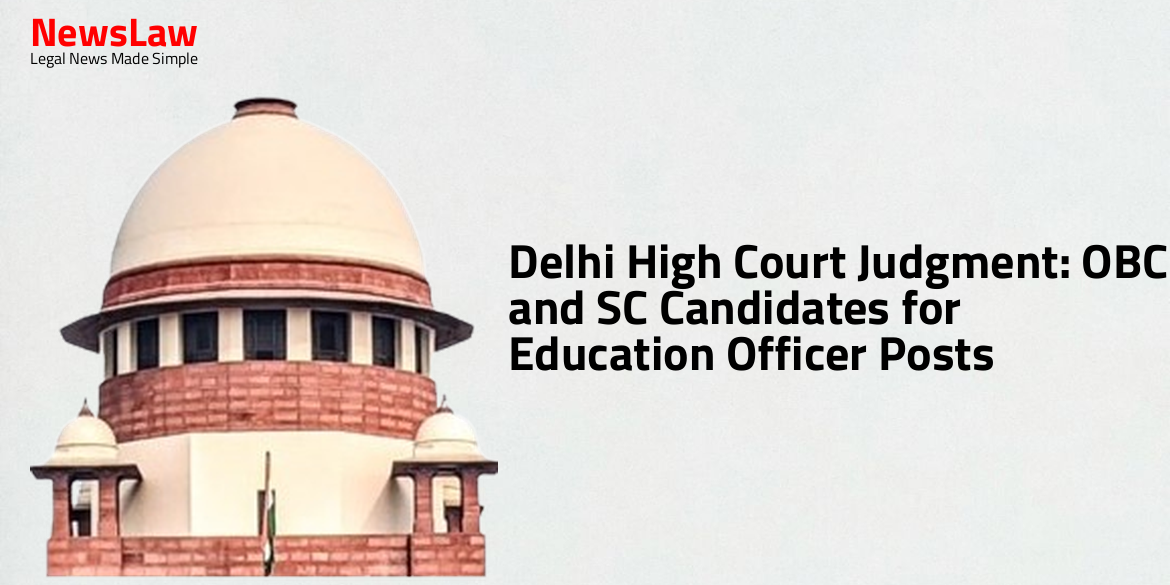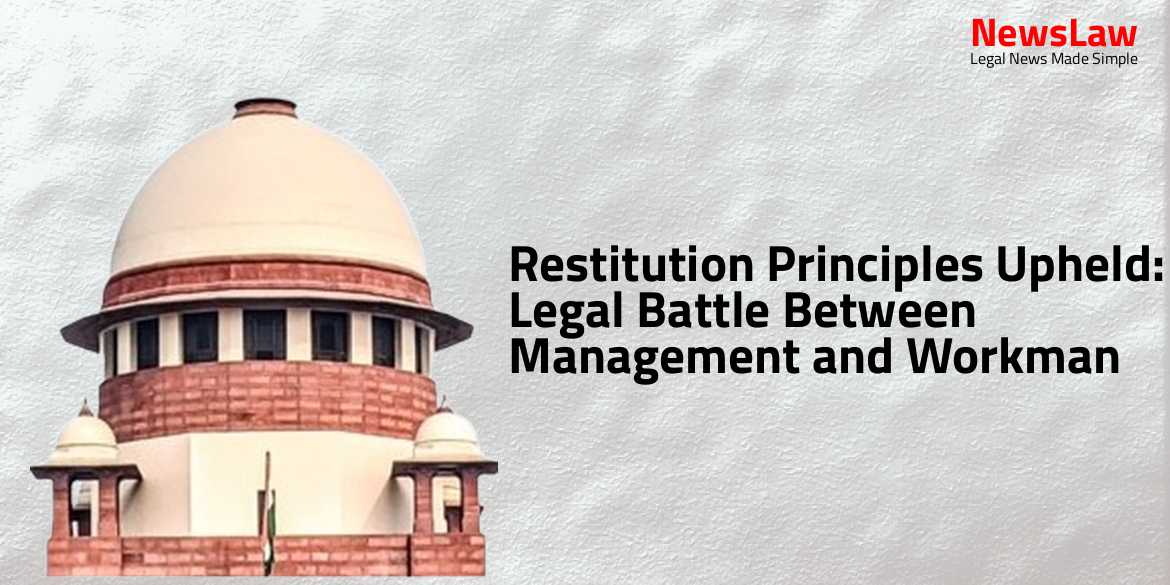The civil appeals arise out of a challenge to the Reserve Bank of India (Frauds Classification and Reporting by Commercial Banks and Select FIs)
Directions 2016. For the reasons to follow, we hold that the principles of natural justice, particularly the rule of audi alteram partem, has to be necessarily read into the Master Directions on Frauds to save it from the vice of arbitrariness. The lender banks decided to adopt the Sustainable Structuring of Stressed Assets Scheme and suggested a forensic audit report and Techno Economic Viability study in its meeting held on 11 July 2016.
The company filed a writ petition challenging both the decision of the JLF dated 15 February 2019 and the resolution of the FIC dated 31 July 2019 before the High Court of Telangana. In September 2019, the appellant learnt that its account has been declared as fraud by the Union Bank of India (erstwhile Andhra Bank). On 28 March 2022, this Court passed a 8 similar ad-interim order in SLP (C) No 873 of 2022 and SLP (C) No 1514 of 2022.
Also Read: https://newslaw.in/case-type/civil/analyzing-the-courts-legal-analysis/
Thereafter, the appellant participated in a series of meetings between the JLF and was consulted by the forensic auditor during the preparation of the audit report. Bank of Baroda red-flagged the appellant’s account on 03 May 2019 based on the observations in the forensic audit report. Based on a special audit, the respondent bank declared the account of the company as NPA on 30 September 2015. The appellant alleges that they acquired knowledge about their account being classified as fraud and registration of the FIR only when a search was carried out at their residential premises in pursuance of the FIR.
Under Clauses 8.9.4 and 8.9.5 of the Master Directions on Frauds, no notice is given to the borrowing company or its promoters, and directors including whole-time directors. The Master Directions on Frauds does not stand good on other facets of audi alteram partem such as notice of allegations levelled and evidence collected, notice of the penalty proposed, among others. Since the 12 decision to classify the account as fraud entails significant civil consequences, principles of natural justice ought to be read into the Master Directions on Frauds. The participation of the borrower during the preparation of the forensic audit report does not in itself fulfil the requirement of the principles of natural justice under the Master Directions on Frauds.
The clauses of the Master Directions on Frauds, therefore, must be interpreted in light of their purpose and objective, that is, timely detection and dissemination of information and reporting about the fraud. Since the lender bank is an injured party in case of fraudulent accounts, it has the right to report the crime to the law enforcement agencies without giving an opportunity of being heard to the fraudulent borrower. The RBI has been constituted for the purpose of taking over the management of currency from the Central Government, regulating the issue of bank notes, keeping of reserves with a view to securing monetary stability, and operating the currency and credit system of India. In exercise of the power conferred by Section 35A, RBI issued the Master Directions on Frauds on 01 July 2016 to consolidate and update seven earlier circulars on classification of fraud, reporting and monitoring issued between June 2009 and January 2016. Clause 3 advises banks to make full use of the Central Fraud Registry (a database created by RBI to enable banks to share information on fraudulent accounts) for timely identification, control, reporting, and mitigation of risks associated with fraud.
The Master Directions on Frauds provides a regulatory framework for four types of frauds: (i) Chapter IV deals with attempted fraud; (ii) Chapter VII deals with cheque related frauds; (iii) Chapter VIII deals with loan frauds; and (iv) Chapter X deals with cases relating to theft, burglary, dacoity, and bank robberies.
EWS which should alert bank officials about wrongdoings in a loan account are set out in Annexure II. A bank is put on alert by the presence of EWS and must use them to trigger a detailed investigation into the concerned bank account. In such situations, the FMG is entrusted with the responsibility to take a call on whether a bank account in which EWS are observed should be classified 21 as RFA. Further, within 15 days the individual bank could ask the consortium leader or the largest lender under the MBA to convene a meeting of the JLF to discuss the issue. Clause 8.11.1 requires banks to lodge complaints with law enforcement agencies immediately on detecting fraud. Even after the completion of the five- year period, it is for the individual financial institutions to decide whether to lend to fraudulent borrowers, including directors and promoters of the borrowing company. Two fundamental principles of natural justice are entrenched in Indian jurisprudence: (i) nemo judex in causa sua, which means that no person should be a judge in their own cause; and (ii) audi alteram partem, which means that a person affected by administrative, judicial or quasi- judicial action must be heard before a decision is taken. At the outset, we clarify that principles of natural justice are not applicable at the stage of reporting a criminal offence, which is a consistent position of law adopted by this Court. Chapter VIII of the Master Directions on Fraud provides detailed procedures to be followed by the banks before forming an opinion to 27 proceed with a criminal complaint against the borrowers. Union of India, a seven-judge bench of this court held that any person prejudicially affected by a decision of the authority entailing civil consequences must be given an opportunity of being heard. V K Awasthy, a two-judge bench of this Court succinctly summarized the history, scope, and application of the principles of natural justice to administrative actions involving civil consequences in the following terms: There is a consistent pattern of judicial thought that civil consequences entail infractions not merely of property or personal rights, but also of civil liberties, material deprivations, and non-pecuniary damages.
The RBI and lender banks have argued that the civil consequences contemplated in Clause 8.12.1 of the Master Directions on Frauds are reasonable. In addition to the above consequences, borrowers are also liable to suffer the following consequences under the Master Directions on Frauds: a) No restructuring may be made in the case of an RFA or fraud accounts (clause 8.12.2) b) No compromise on settlement involving a fraudulent borrower is allowed unless the conditions stipulate that the criminal complaint will be continued (clause 8.12.3) The above consequences show that the classification of a borrower’s account as fraud under the Master Directions on Frauds has difficult civil consequences for the borrower. The question in Jah Developers (supra) was whether a person who is declared to be a wilful defaulter according to the procedure laid down in the Master Circular on Wilful Defaulters is entitled to be represented by a lawyer of their choice before such a declaration is made. Thus, it is clear that the procedure for declaration of a borrower as a wilful defaulter is different from the procedure envisaged under the Master Directions on Frauds for classifying a borrower’s account as fraud. The observations of the Court are extracted below: In Jah Developers (supra), this Court construed the Master Circular on Wilful Defaulters by harmonizing it with the principles of natural justice. Indeed, debarment is akin to blacklisting a borrower from availing credit.
The material sentence of the notice there read as follows: This Court applied the position of law in Erusian Equipment & Chemicals Ltd (supra) to hold that the Executive Engineer ought to have given the contractor adequate opportunity to represent against the proposed action of debarment. State of Bihar, a two-judge bench of this Court held that since blacklisting entails civil consequences an order of blacklisting should be issued only after following the principles of natural justice: 37 47. The Court held that any order or decision of the authority adversely affecting the personal reputation of an individual must be taken after following the principles of natural justice: 50. Principles of fair play require that borrower ought to be given an opportunity of being heard before classifying the account as fraud in accordance with the procedure laid down under the Master Directions on Frauds. The Directions contemplate an opportunity of hearing to a third party who is involved in the commission of fraudulent activity, but do not explicitly provide for hearing to a borrower. The Court held that the use of the phrase does not exclude the duty to comply with the audi alteram partem rule: Sarkaria, J observed that that the owner of an undertaking is entitled to a fair hearing at the pre-decisional stage because the power of the Central government under Section 18AA-(1)(a) to take over is far-reaching and adversely affects the rights and interests of owners. As a counter to the above legal position, the RBI and lender banks have contended that the principles of natural justice could be excluded in cases where there is a requirement of promptitude or exigent action. While noting the fact that the entire process of amalgamation was statutorily required to be completed within 6 months, this Court held that the said time frame provides scope for granting an opportunity of hearing to the affected employees: 60. Given the wide time frames contemplated under the Master Directions on Frauds as well as the nature of the procedure adopted, it is reasonably practicable for banks to provide an adequate opportunity of a hearing to the borrowers before classifying their account as fraud. The RBI and lender banks have further submitted that the requirement of natural justice is already fulfilled under the Master Directions on Frauds as the borrower is allowed to participate during the preparation of the forensic audit report. Audi alteram partem has several facets, including the service of a notice to any person against whom a prejudicial order may be passed and providing an opportunity to explain the evidence collected. Therefore, principles of natural justice demand that the borrowers must be served a notice, given an opportunity to explain the findings in the forensic audit report, and to represent before the account is classified as fraud under the Master Directions on Frauds.
Also Read: https://newslaw.in/case-type/criminal/alleged-misuse-of-official-position-courts-legal-analysis/
Case Title: STATE BANK OF INDIA Vs. RAJESH AGARWAL (2023 INSC 303)
Case Number: C.A. No.-007300-007300 / 2022



